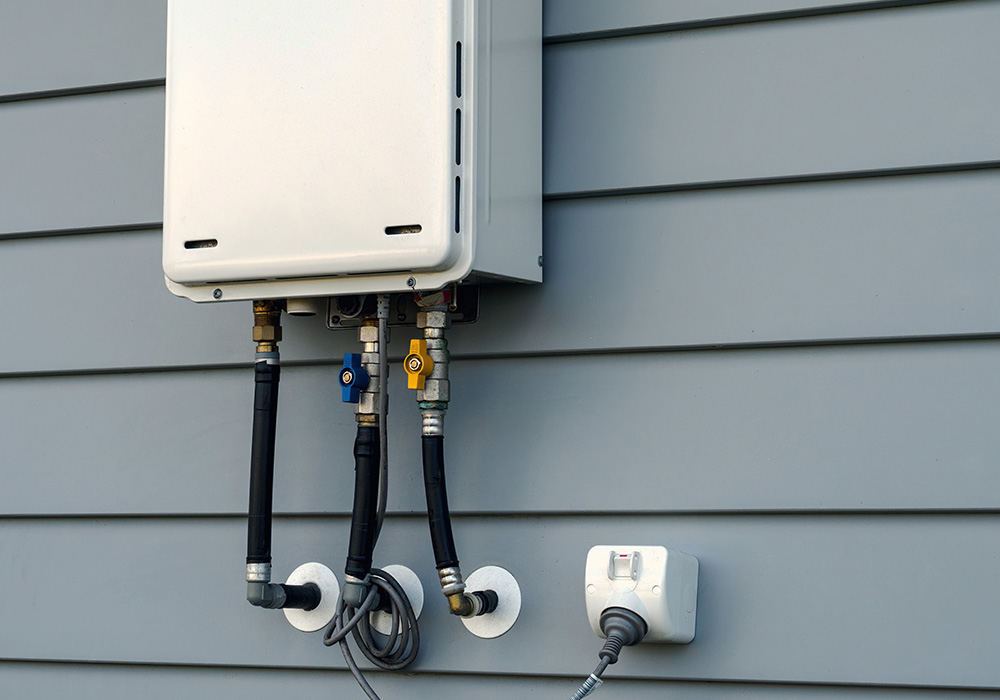Your hot water system works tirelessly behind the scenes, providing comfort and convenience for your daily routine. However, like all household appliances, hot water systems don’t last forever. Recognising the warning signs and understanding when replacement makes more sense than repairs can save you from unexpected cold showers or a costly emergency callout.
Clear Warning Signs It Is Time for a Hot Water System Replacement
The most obvious indicator is age. Most hot water systems have a lifespan of 8-12 years, depending on the type and maintenance history. Some can last a lot longer, this is just a conservative average. If your system is approaching or exceeding this timeframe, replacement should be on your radar even if it’s still functioning well.
Inconsistent water temperature is another red flag. If you’re constantly adjusting taps to find the right temperature, or if hot water runs out much faster than it used to, your system is likely struggling to maintain efficiency. Strange noises like banging, popping, or rumbling sounds often indicate sediment buildup or failing internal components.
Visible rust around the unit, discoloured water, or any signs of leaking suggest serious internal deterioration that typically can’t be economically repaired. As experienced plumbers on the Sunshine Coast that have replaced many hot water systems, we can help you make the right decision for your home.
The Cost-Benefit Analysis
When repair costs start mounting up, replacement often becomes the smarter financial choice. A good rule of thumb is if repair costs exceed 50% of a new system’s price, replacement is usually more economical long-term. But this will depend on an individual’s personal circumstances of course.
Older systems are also significantly less energy-efficient than modern alternatives. New hot water systems can reduce your energy bills by 20-30%, meaning the investment often pays for itself over time through lower running costs. In today’s world, with high energy prices, you might also think about switching to a solar hot water system or heat pump hot water options.
Choosing the Right Replacement System
Modern hot water technology offers several efficient options. Electric storage systems remain popular for their reliability and lower upfront costs. Gas systems provide faster heating and lower running costs where natural gas is available. Heat pump systems offer excellent efficiency but require adequate ventilation space.
Solar hot water systems often represent the best energy efficiency, though they require higher initial investment and suitable roof orientation. Instantaneous systems save space and provide unlimited hot water on demand, an option perhaps for smaller homes or high-usage households.
Professional Installation Matters
Hot water system replacement isn’t a DIY job. Professional installation ensures compliance with local plumbing codes, proper electrical connections, and warranty protection. Qualified plumbers handle permits, old system disposal, and we can recommend the best system size and type for your household’s specific needs.
Professional installers also ensure proper pressure relief valve installation, adequate drainage, and correct positioning for optimal performance and safety.
Timing Your Replacement Strategically
Our advice is not to wait for complete failure. Planning your hot water system replacement during warmer months often means better availability and potentially better pricing. Emergency replacements typically cost more and they can limit your options.
If you’re renovating or have other plumbing work planned, coordinating your hot water system replacement with that can reduce overall costs and disruption.
Investing in a quality hot water system replacement service ensures reliable hot water for years to come while improving your home’s energy efficiency and reducing ongoing costs. If you have any questions about hot water in your home or commercial premises, then simply contact us today.

